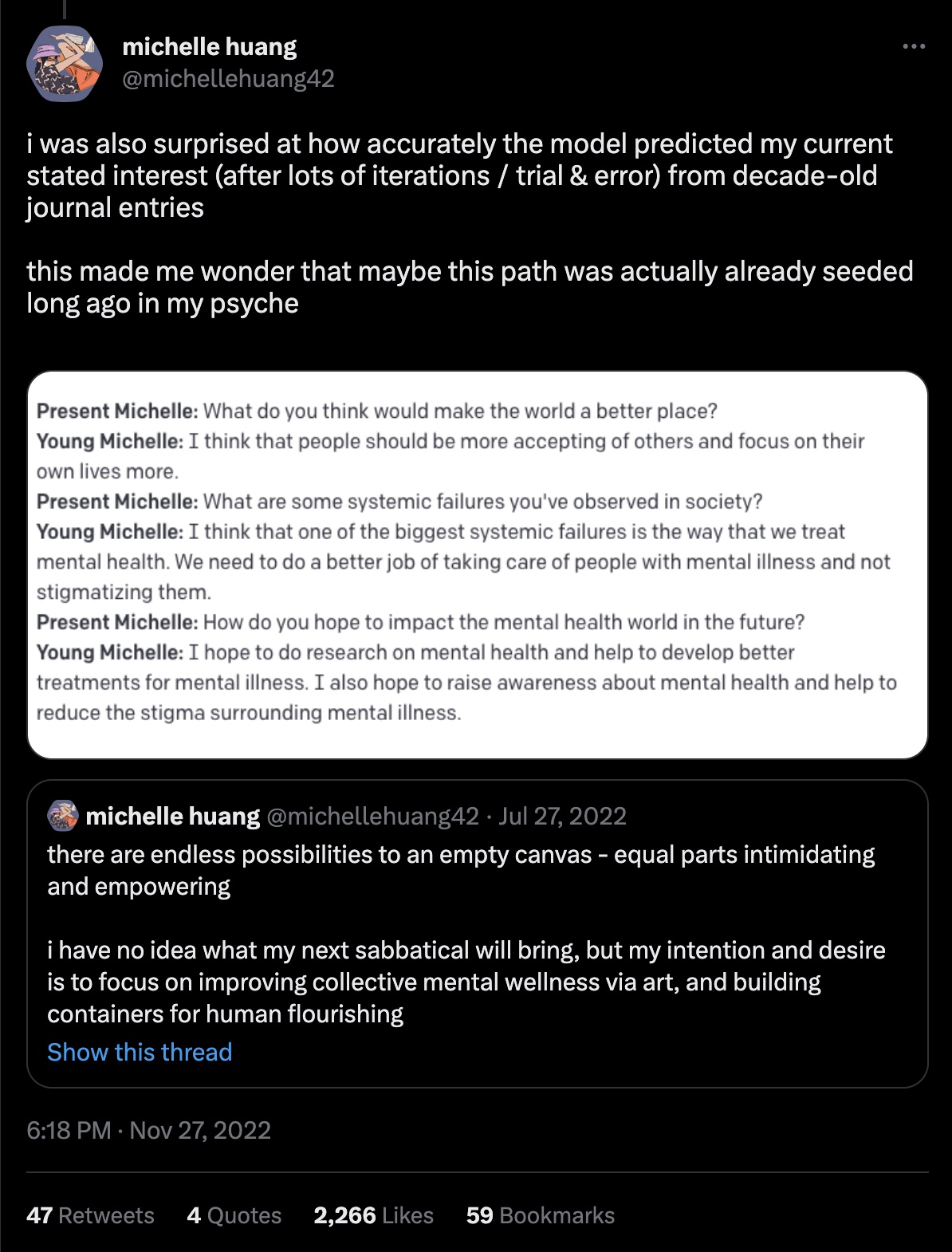This is the seventh post in my series of daily posts for the month of April. To get the best of my writing in your inbox, subscribe to my Substack.
Sometimes I catch up with friends I haven’t talked to in a few years and they go woah, since when were you into psychology? And the answer is: forever, kinda.
When I was in middle school my teacher asked the class to write an essay to answer the question “what is your favorite subject?” I wasn’t satisfied with an answer like “science” or “math” so I did a wikipedia rabbit hole on all the branches of knowledge and their subcategories and subsubcategories. The final essay had sentences like:
I cannot simply say that science is my favourite subject, nor can I pick an extremely specific field of study out of all of the ones there are, such as myrmecology, which is a branch of entomology, which is a branch of arthropodology, which is a branch of zoology, which is a branch of biology, which is a branch of natural science.
After all my taxonomization, I concluded by saying that my favorite subject was…cognitive science. I didn’t really know what this meant at the time, but I had a rough idea, and more importantly, I loved the image I found on the cognitive science wikipedia page:
 The display image on the wiki page for cognitive science when I was in middle school. Good thing I saved it because the image has since between removed.
The display image on the wiki page for cognitive science when I was in middle school. Good thing I saved it because the image has since between removed.
My teacher was very supportive of my intellectual endeavors, so he actually gave me his undergraduate psychology textbook, which I started poring over, and I did my eighth grade end-of-year personal presentation on the relationship between language and thought.
This is the part of the story where I’m supposed to tell you that I went on to do research for psychology professors in high school, before graduating magna cum laude at Harvard, publishing a few papers in Nature, and doing my PhD thesis with Steven Pinker on a unified theory of language and consciousness. While also writing a famous popular science book on the side or something.
But no, I took a bit of a detour. I got really into history, and then really into education reform, and then I spent a few years wanting to be a physicist, before I read Wittgenstein and decided that knowledge isn’t a real thing.1 At that point I gave up on academia and decided to take the pragmatic path and build software products.
It wasn’t until the pandemic—just over a decade after I’d written that journal post—that I started getting into psychology seriously again. I remember listening to Sam Harris debate Donald Hoffman about his interface theory of consciousness for three hours. I was sitting alone in my apartment in New York, as the whole city had shut down, and thinking to myself, holy shit I forgot how much I liked this stuff.
It seems like if you look hard enough, you can find the seeds of your personal telos early in your childhood. I think about how Einstein, at the age of 12, was already thinking about how light would look if you were travelling alongside it at the same speed. Or how my friend Michelle, after uploading her childhood journals to an AI chatbot, found that it was surprisingly prescient about where her interests would lead:
I don’t know what to make of this. On the one hand, it’s not that hard to sniff around for childhood anecdotes that fit with whatever life story you want to tell yourself at the moment. But on the other side of the same hand, there really does seem to be a “core path” that your soul tries to beckon you towards, and you can notice this beckoning and if you pay really really close attention.
Paying close attention doesn’t give you an answer like “you should be a psychology professor”, or “your calling is to be a mid-level manager at McKinsey”. It’s more like: “this!! this idea/feeling/activity right here is extremely satisfying, whatever it is, do more of that.” It’s a strange combination of: you want more, but you’re also very satisfied, and doing it somehow makes you feel really grateful for your existence, but also it requires actual effort, it’s not passive.
You can’t know for sure what is a sidequest and what is a true calling ahead of time. You kinda need to go through the detours and see them to completion to figure out if they’re actual detours or not. Always be open to the possibility of further surprises: I’m still in the middle of this story, and perhaps this fascination with the mind will turn out to be yet another detour for some deeper calling that I’ve yet to notice.
And detours aren’t even a bad thing! The problems you face and the mistakes you make are often exactly the ones that you need to resolve to get to where you really need to be. (It also goes without saying that “following your passion” requires certain prerequisites like a baseline level of privilege and safety.)
All of this has given me a personal rule of thumb for whenever I’m feeling lost. As soon as you can, create open space, create free time. Even if it’s just twenty minutes after you get home from work, try to figure out what strikes your interest most in that free time. Do a little bit of that thing, and see how you feel the next day: either repeat the same thing or try something new. And then keep going.
For more of my writing, you can subscribe to my Substack.
-
Perhaps I could be forgiven for misunderstanding him at the time, but the conclusion I came to on my first read of the Tractatus was that “nothing means anything so just enjoy yourself lol”. ↩︎
